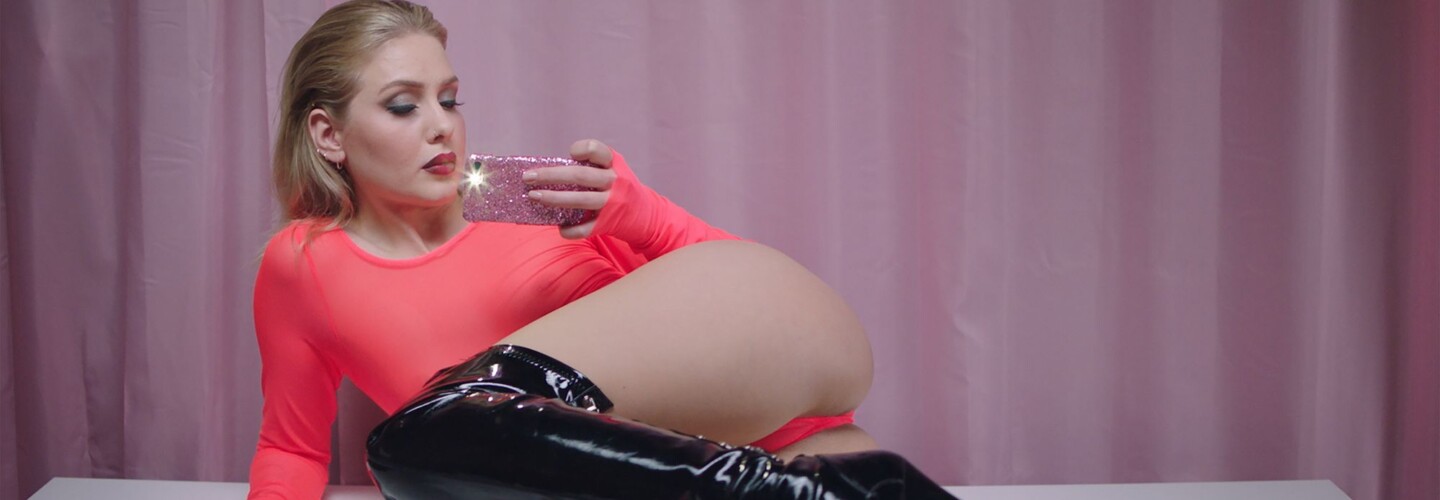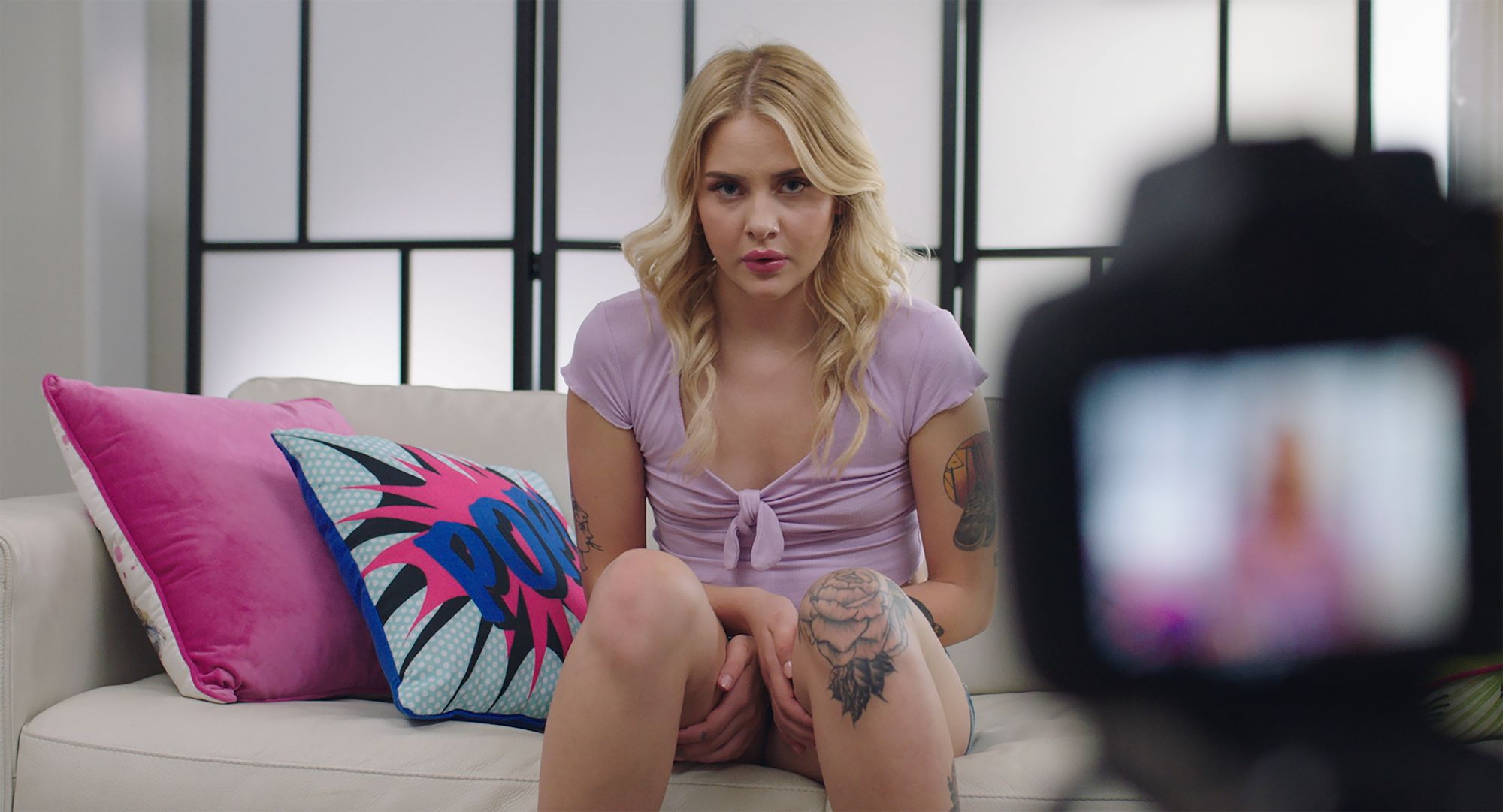
Whatever your opinions on the subject, pornography is an industry worth an estimated $15bn a year and is very much a mainstay of our world. Whilst there are undoubtedly dark seams which permeate all facets of the adult entertainment industry, Swedish Writer-Director Ninja Thyberg has worked tirelessly over a decade to offer a revelatory and intimate snapshot of the industry which doesn’t pander to preconceived prejudices about those for whom porn is a job. Her debut feature Pleasure (which premiered at the 2021 Sundance Film Festival) is both shocking and captivating, taking audiences inside the mechanics of the extraordinarily explicit scenes available for all to stream at the click of a button, yet at its heart, tells the story of a young woman trying to succeed in her chosen career and the day to day struggles which embody any climb up the proverbial ladder.
Thyberg’s 2013 Cannes-winning short film of the same title opened up a subject that she then felt compelled to research extensively until she was prepared enough to embark on a feature film set in that clandestine world. Pleasure offers us an uncompromising lens through which to view the powerful concepts of consent and agency, featuring professional actors working in the industry alongside an astonishing lead performance from actor Sofia Kappel. With Pleasure making its way to cinemas this week and available to stream on MUBI from the 17th of June, DN sat down with Thyberg to talk about creating a new awareness around the subject of working in porn and the intricacies there within, as well as the importance of ensuring both cast and crew were comfortable whilst shooting the film’s challenging sex scenes.
– The following interview is also available to watch at the end of this article.
You made a short back in 2013 set within the porn world also titled Pleasure, was that film created as a proof of concept for this feature debut?
No, I always knew I wanted to make a feature and apart from the theme and the name there aren’t many similarities. I didn’t actually plan on using the same title but I never came up with a better one and for a long time I was like, damn, I already used the perfect title and I thought I wasted it on the short film. But eventually I just decided there wasn’t a huge audience for the short, so I might as well reuse it. Ultimately, I hoped to be able to use the short as some kind of stepping stone which I did.
I think when writing you usually write the main character as some version of yourself.
The huge difference was when making the short, I had never been on a porn set or met anyone from the industry and so it was very much based on assumptions. I had done a lot of research and had tried to understand the world but the short was really a mixture of different documentaries and biographies. Over time I felt like a bit of a hypocrite when saying in interviews that I wanted to portray the real people behind the porn stereotypes and so I decided I was going to do it properly the second time and when I went to LA in 2014 to launch into research I decided to start with a blank, clean slate. I knew of course that it would be from a female point of view and that I wanted the main character to be Swedish because I wanted to be able to really fully relate to and understand her, there’s certainly a little bit of me in her. I think when writing you usually write the main character as some version of yourself but I try to stay very open and just let the story come to me and build it from the research.
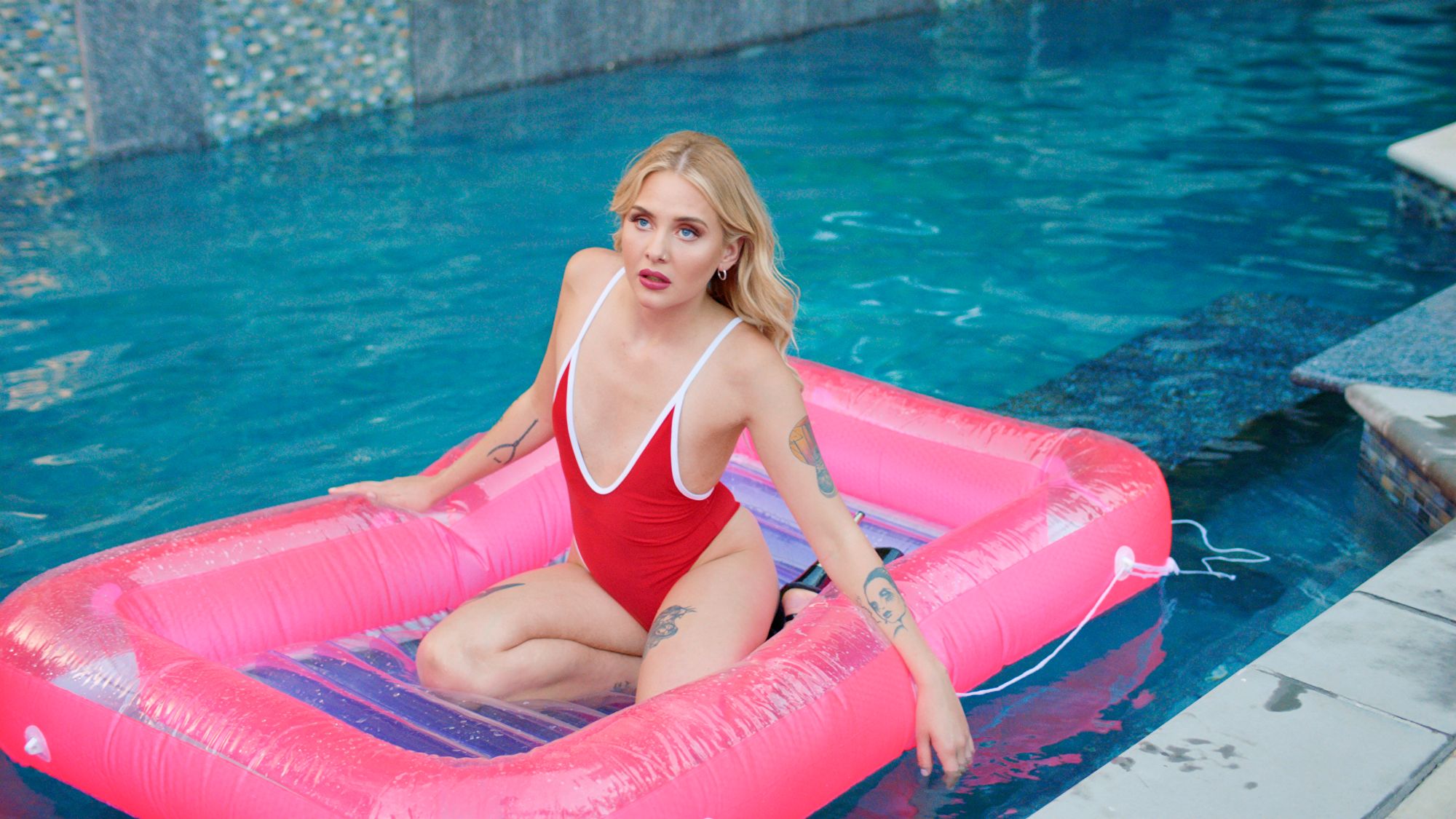
Despite being a fictional story the film has an almost documentary, outsider feel to it. How did you arrive at that stylistic perspective for the narrative?
I knew what I was looking for, even though I couldn’t put it into words. I had a very strong intuition and got a feeling of where and what direction to go. My background is photography so during my research I brought my camera with me most of the time. I took a lot of pictures and I also shot a lot of video on the porn sets. I obviously explained I wasn’t going to use these publicly but was just going to use them for myself. I found I was able to use my camera as a way of discovering the world and I developed a certain language or way of looking. I have been in the process of working on the film since 2010 and worked full-time on it for 6 years so it is incredibly close to me. I feel like I know it so well that I just know how to put it all together and know how it should be.
I found I was able to use my camera as a way of discovering the world and I developed a certain language or way of looking.
Most importantly, I wanted to create awareness in people, allow them to see things that they did not know and to open a new headspace. I was looking for the elements we don’t get to see in a porn film. The things that women were trying to hide about their natural bodies in order to create the male fantasy and how I could garner that realisation from the audience.
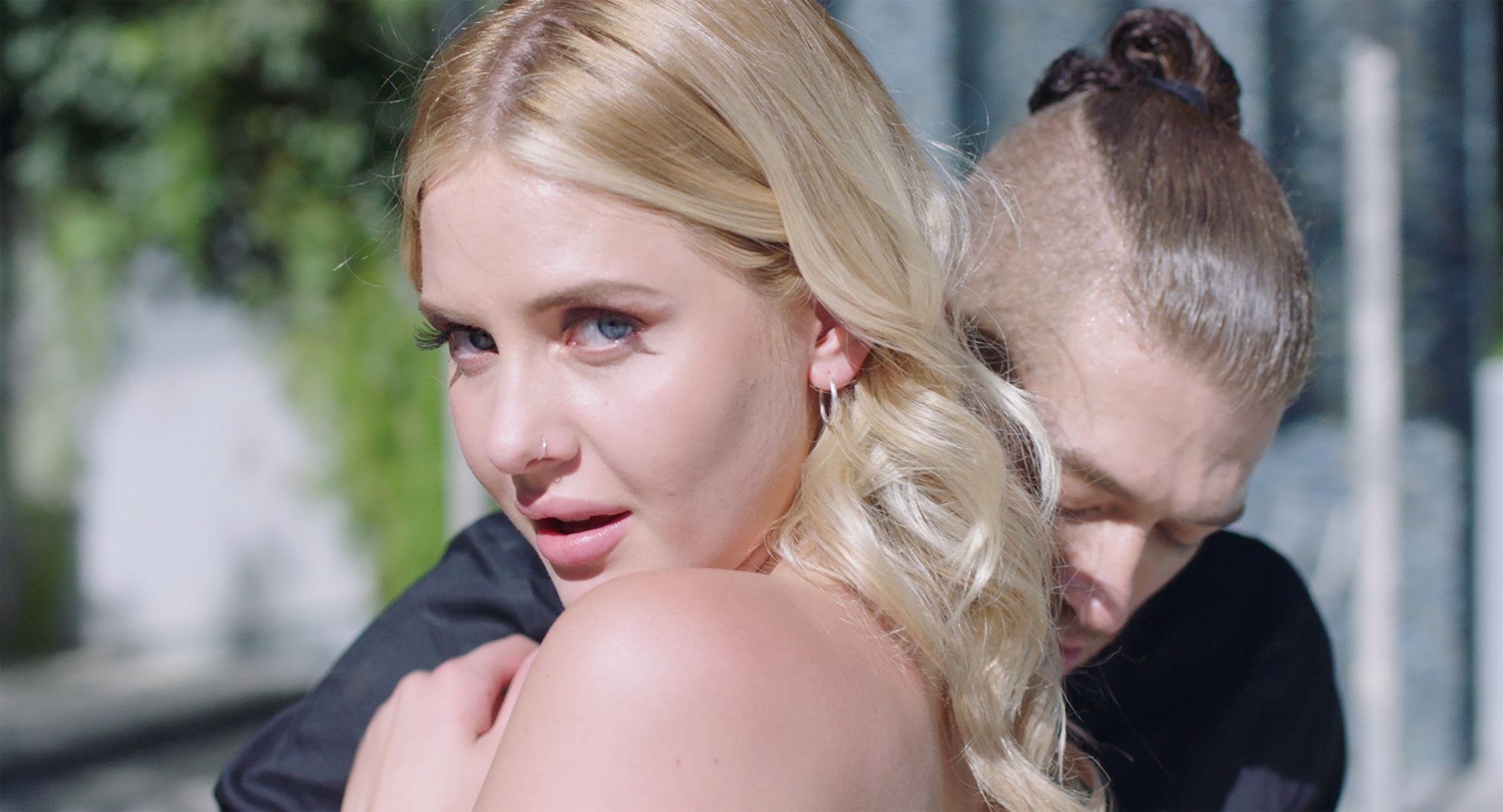
In keeping with the nature of its subject matter Pleasure is a film which features several extended sex scenes. Did you have an intimacy coordinator on set to help you navigate shooting those explicit scenes with your actors?
We did not have an intimacy coordinator because we shot all the sex scenes in 2018 and at that time no one had even really heard about it, I didn’t even know what the role was so I had to do that job. I got a lot of help from the people we worked with in the industry who are so used to working with nudity and how to deal with someone who is new to it. They were so comfortable with everything and were able to help us in situations where we needed to fake things and make things look more explicit than they were. The real challenge was actually having to look after the wider team and those who weren’t used to the porn industry at all. Having to handle their emotions and reactions to perhaps a guy with an erection on set.
I wanted to create awareness in people, allow them to see things that they did not know and to open a new headspace.

Sofia Kappel is phenomenal here in her role as Bella and seems so at ease with everything she does. How did you two approach the project together?
Sofia and I developed such a strong relationship and she was so comfortable in that environment because she had gotten to know the people and the world. She had been with me doing research and she had met and made friends with so many people in the industry before filming. She came to LA with me six months before we started shooting, and joined me on the research and development of her character and the script. The whole process has been so immersed in searching and constantly digging so I was very open to continuing to develop the script the whole time.
The real challenge was actually having to look after the wider team and those who weren’t used to the porn industry at all.
The violent scenes were obviously the hardest and there was a lot of practice and a lot of rehearsal. We spent time talking about boundaries, finding her boundaries and, importantly, working with people that we felt really comfortable and safe with.
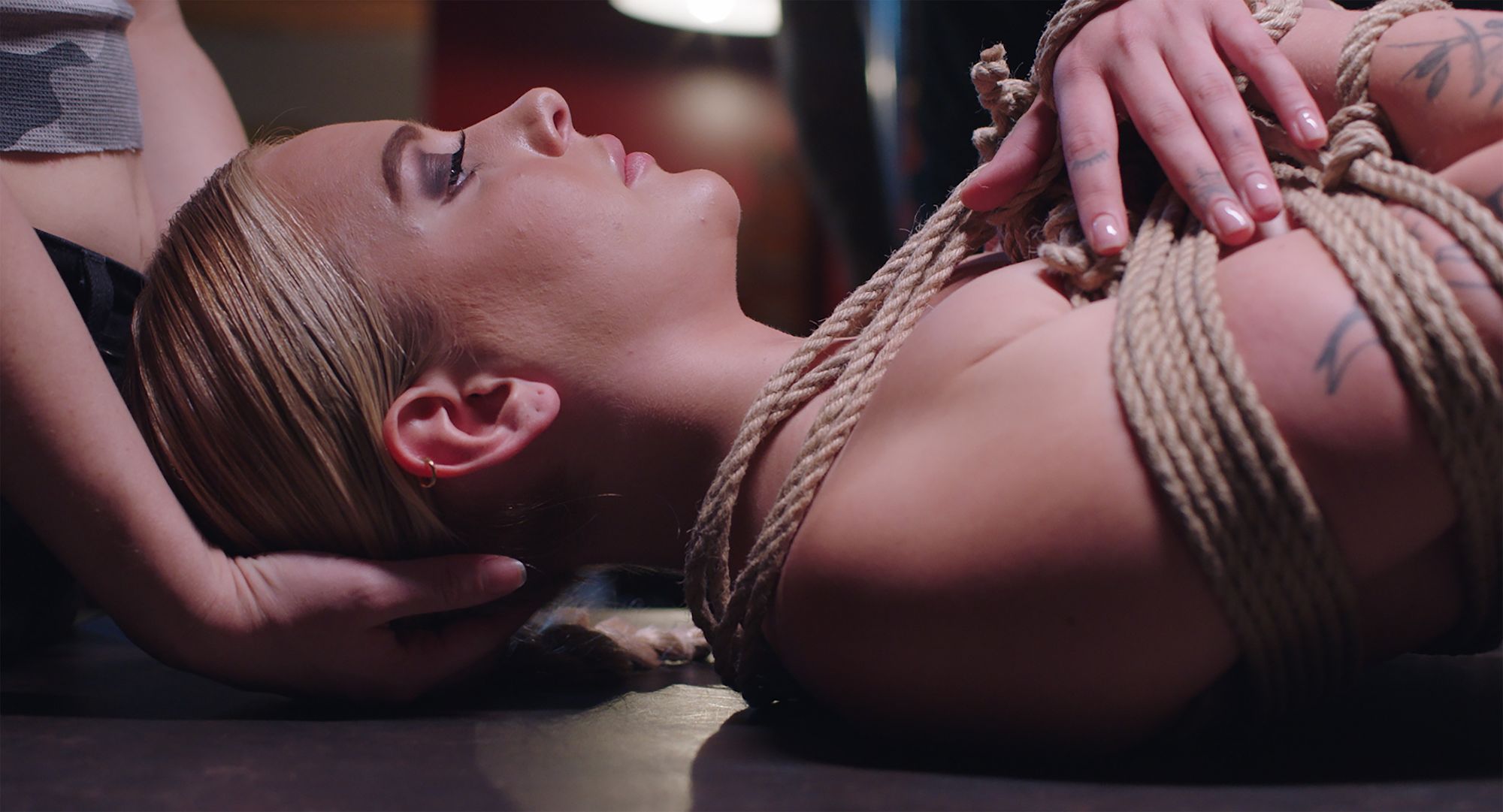
And finally, there are considerable preconceived notions about the backgrounds of women in porn and the obvious patriarchal if not outright misogynistic structure of the industry. How were you able to cross that judgemental boundary to provide a fresh perspective with Pleasure?
When I first started I also held that problematic view. Asking why they do it and thinking that underneath there was something wrong with them somehow. I quickly realised how extremely problematic that question is and how we tend to focus on psychoanalysing women instead of looking at the men or the world or finding the individual reasons for why they do this, it’s all problematic. I decided to not really go into that at all and instead just focus on the structure of the world and the mechanisms of how things work in the industry rather than psychoanalysing her. I wanted to push the audience in another direction.

